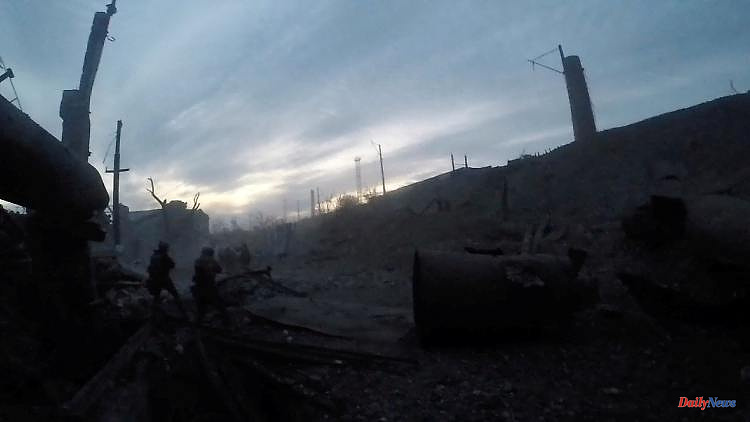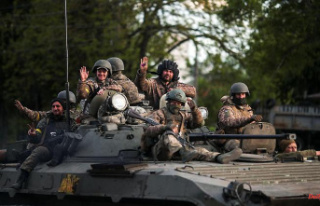No medication, hardly any water and food: Ukrainian fighters held out in desperate circumstances in the Azov steelworks in Mariupol. According to Russian information, almost 1,000 fighters have been taken into Russian captivity since Monday.
Russia says it has captured nearly 700 more Ukrainian soldiers from the besieged Azov steelworks in Mariupol. In the past 24 hours, 694 fighters surrendered, including 29 wounded, the Russian Defense Ministry said.
A total of 959 Ukrainian soldiers have surrendered at the Mariupol plant since Monday. So far, there has been no confirmation of this number from the Ukrainian side. Like Moscow before it, Kyiv had spoken of a little more than 260 soldiers who had been taken away from the factory premises. According to the information provided by both sides, more than 50 were injured among them. Ukraine hopes to be exchanged for Russian prisoners of war, but Russia's military left such a step open.
The Russian presidential office had said it would treat the fighters according to international standards. Russian President Vladimir Putin has promised this, said Kremlin spokesman Dmitry Peskov.
Leonid Slutski, who is negotiating with Ukraine on behalf of Russia, brought up the death penalty for members of the Ukrainian Azov regiment. "They do not deserve to live in the face of the monstrous human rights crimes they have committed and continue to commit against our prisoners," he said on Tuesday. Some of the last Ukrainian fighters still holding out in Mariupol belong to the Azov regiment, which the Russians classify as nationalist and right-wing extremist. In Moscow, Azov is repeatedly used as a justification for the war against Ukraine, which aims, among other things, at the supposedly necessary "denazification" of the neighboring country.
It is also not clear whether there will be an exchange of prisoners after the capture. The head of the Russian parliament, Vyacheslav Volodin, spoke out against a general exchange of prisoners. "Nazi criminals are not subject to exchange. They are war criminals and we must do everything we can to bring them to justice," said the Duma chief at a plenary session.
Volodin stressed that Russia is doing everything to provide medical care and humane treatment to injured Ukrainian prisoners. "But as far as the Nazis are concerned, our position must remain firm because that is one of the objectives of the military special operation," he said. In Moscow, the war that began against Ukraine at the end of February is officially referred to only as a "special military operation". Nevertheless, Volodin now spoke of "prisoners of war".
6












